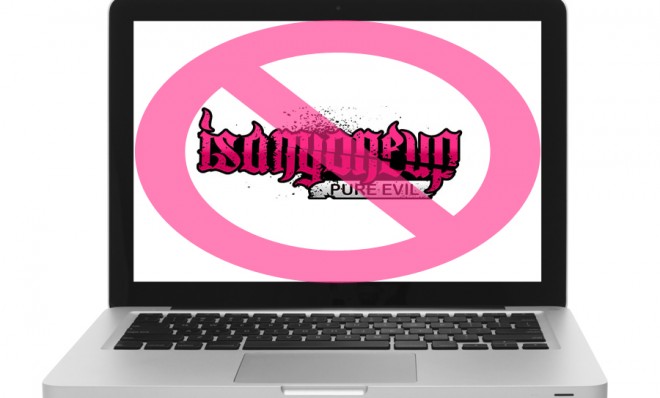Why it's so difficult to ban 'revenge porn'
Almost everyone hates it. But state legislatures are having a tough time fighting it.

A free daily email with the biggest news stories of the day – and the best features from TheWeek.com
You are now subscribed
Your newsletter sign-up was successful
Before it was shut down last spring, the website Is Anyone Up was the leading publisher of "revenge porn," defined by the Village Voice as "cell-phone nudes" submitted by "scorned exes, embittered friends, [and] malicious hackers" posted next to the subject's name, location, and social media information.
The resulting outrage directed at the site and its founder, Hunter Moore (whom Rolling Stone called "The Most Hated Man on the Internet"), made it look like bans on revenge porn would be an easy sell to lawmakers.
So far, it hasn't turned out that way. Only New Jersey has a law on the books specifically targeting revenge porn.
The Week
Escape your echo chamber. Get the facts behind the news, plus analysis from multiple perspectives.

Sign up for The Week's Free Newsletters
From our morning news briefing to a weekly Good News Newsletter, get the best of The Week delivered directly to your inbox.
From our morning news briefing to a weekly Good News Newsletter, get the best of The Week delivered directly to your inbox.
Now, California is looking to punish anyone who posts nude or partially nude images of subjects who had a "reasonable expectation of privacy," including when the photographer originally had the subject's consent. If the bill is passed this week, it would make posting revenge porn a misdemeanor punishable by up to a year in prison and a $2,000 fine.
Considering no legislator wants to be considered "pro-revenge porn," it should sail through the legislature. However, that is what lawmakers in Florida and Missouri thought before similar legislation stalled last year.
So what's the problem?
The issue of who is responsible for the photos is a big stumbling block, writes Patt Morrison at the Los Angeles Times:
A free daily email with the biggest news stories of the day – and the best features from TheWeek.com
As with an actual paper-and-ink letter, does the recipient of the photo own the actual physical picture but not the "content," and therefore the right to reproduce it anywhere? Is the owner of the photo the person who took it or the person who appears in the photo? What if it’s one and the same, a "selfie"? [Los Angeles Times]
Revenge porn sites also have a lot of the protections enjoyed by sites like Facebook and Flickr. Under Section 230 of the Communications Decency Act, notes Somini Sengupta at The New York Times, third-party platforms are usually not liable for content generated by their users.
If prosecutors can't go after sites, they would have to go after users — who are often anonymous. If an image goes viral, that further complicates the issue of who is responsible for posting an illegal photo.
There are also First Amendment concerns, which have been raised by the American Civil Liberties Union (ACLU) and the Electronic Frontier Foundation (EFF).
"Whenever you try and criminalize speech, you have to do so in the most narrowly tailored way possible," EFF lawyer Nate Cardozo tells KABC Los Angeles. He worries that Caifornia's bill "also criminalizes the victimless instances" — such as sites that host legal, consensual pornography.
Regardless of the legal complications, passing the bill would send a message to police and prosecutors, argues Danielle Citron, a law professor at the University of Maryland. "It signals taking the issue seriously, that harms are serious enough to be criminalized," he tells the Times.
Keith Wagstaff is a staff writer at TheWeek.com covering politics and current events. He has previously written for such publications as TIME, Details, VICE, and the Village Voice.
-
 The ‘ravenous’ demand for Cornish minerals
The ‘ravenous’ demand for Cornish mineralsUnder the Radar Growing need for critical minerals to power tech has intensified ‘appetite’ for lithium, which could be a ‘huge boon’ for local economy
-
 Why are election experts taking Trump’s midterm threats seriously?
Why are election experts taking Trump’s midterm threats seriously?IN THE SPOTLIGHT As the president muses about polling place deployments and a centralized electoral system aimed at one-party control, lawmakers are taking this administration at its word
-
 ‘Restaurateurs have become millionaires’
‘Restaurateurs have become millionaires’Instant Opinion Opinion, comment and editorials of the day